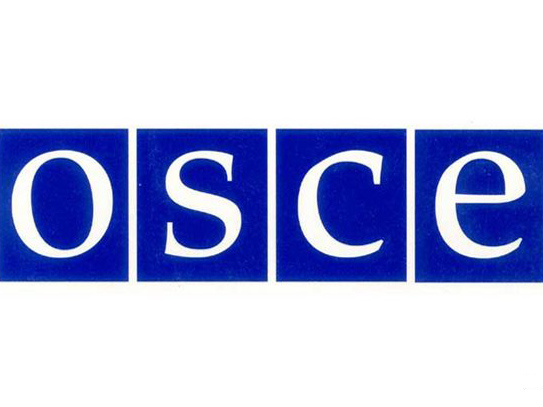Baku, Azerbaijan, Feb. 10
By Elmira Tariverdiyeva – Trend:
The issue related to the mandate of the OSCE Office in Yerevan has been elevated to such a crisis level that seriously affected trust that Baku put on the chairmanship and others within the organization, said the Permanent Mission of Azerbaijan to the OSCE in a statement, the diplomatic mission told Trend Feb. 10.
“During series of consultations over the past months, our delegation was informed of violations of the mandate of the OSCE Office in Yerevan from different angles. We have been informed that violation of the mandate even goes beyond the scope identified by Azerbaijan and includes certain managerial and organizational aspects of the work of the OSCE field mission. Against this background, it is of extreme disappointment that the situation continues to be addressed in a discriminatory manner with a view to putting the blame on Azerbaijan,” says the statement.
“Over the past months, Azerbaijan took constructive position hoping for finding a solution to the matter. Unfortunately, it was not reciprocated by the participating state that hosts the field mission. Instead, that delegation opted for open blackmailing and blocked the mandates of other field missions,” says the statement. “Yet, we have not seen any statement by those delegations which took the floor today condemning such inadmissible actions by Armenia. This casts doubt on sincerity of these delegations and demonstrates lack of constructive engagement on their part to help solve the current stalemate.”
“Clearly, we do not see green light at the end of tunnel with regard to the solution of the issue, until we put an end to misinterpretation and abuse of the mandate of the OSCE Office in Yerevan,” according to the statement. “We do not trust to the Head of the Office and we do not see authority in the Chairmanship, as well as in the Delegations, which spoke today, to impose the position that activities of the Office are in line with its mandate. This is the responsibility of the Council to decide upon.”
“We do not want to go further in investigating the matter. There is mistrust to the Office and it may continue to engage into activities related to the conflict between Armenia and Azerbaijan. This should be rectified with amendments to its mandate indicating that the Office is not entitled to be involved in any activity related to the conflict. This will be a clear signal to the Office and the host-country to refrain from misusing the OSCE field mission,” says the statement.
“It is already 3 years that our delegation has been raising concerns over this programmatic activity of the Office and we are fed up with a lack of clarity with regard to the mandate of the Office and apparent attempts to abuse this situation against legitimate interests of Azerbaijan. This should be stopped,” noted the Azerbaijani delegation in its statement. “Until the limits for activities of the OSCE Office in Yerevan in all three dimensions clarified through decision of the Permanent Council, we will not join consensus on the extension of its mandate.”
Earlier, the Azerbaijani delegation informed the OSCE Permanent Council that they don’t support the draft decision on extension of the mandate of the OSCE Office in Yerevan.
Azerbaijan expressed concern that the OSCE Office in Yerevan is engaged in activities, which don’t befit the mandate of the organization. It has become source of serious concern that over the past years the Office in Yerevan has been drawn into the demining-related activity, which is clearly a post-conflict rehabilitation measure, noted the Azerbaijani delegation.
The conflict between the two South Caucasus countries began in 1988 when Armenia made territorial claims against Azerbaijan. As a result of the ensuing war, in 1992 Armenian armed forces occupied 20 percent of Azerbaijan, including the Nagorno-Karabakh region and seven surrounding districts. The 1994 ceasefire agreement was followed by peace negotiations.
Armenia has not yet implemented four UN Security Council resolutions on withdrawal of its armed forces from the Nagorno-Karabakh and the surrounding districts.






